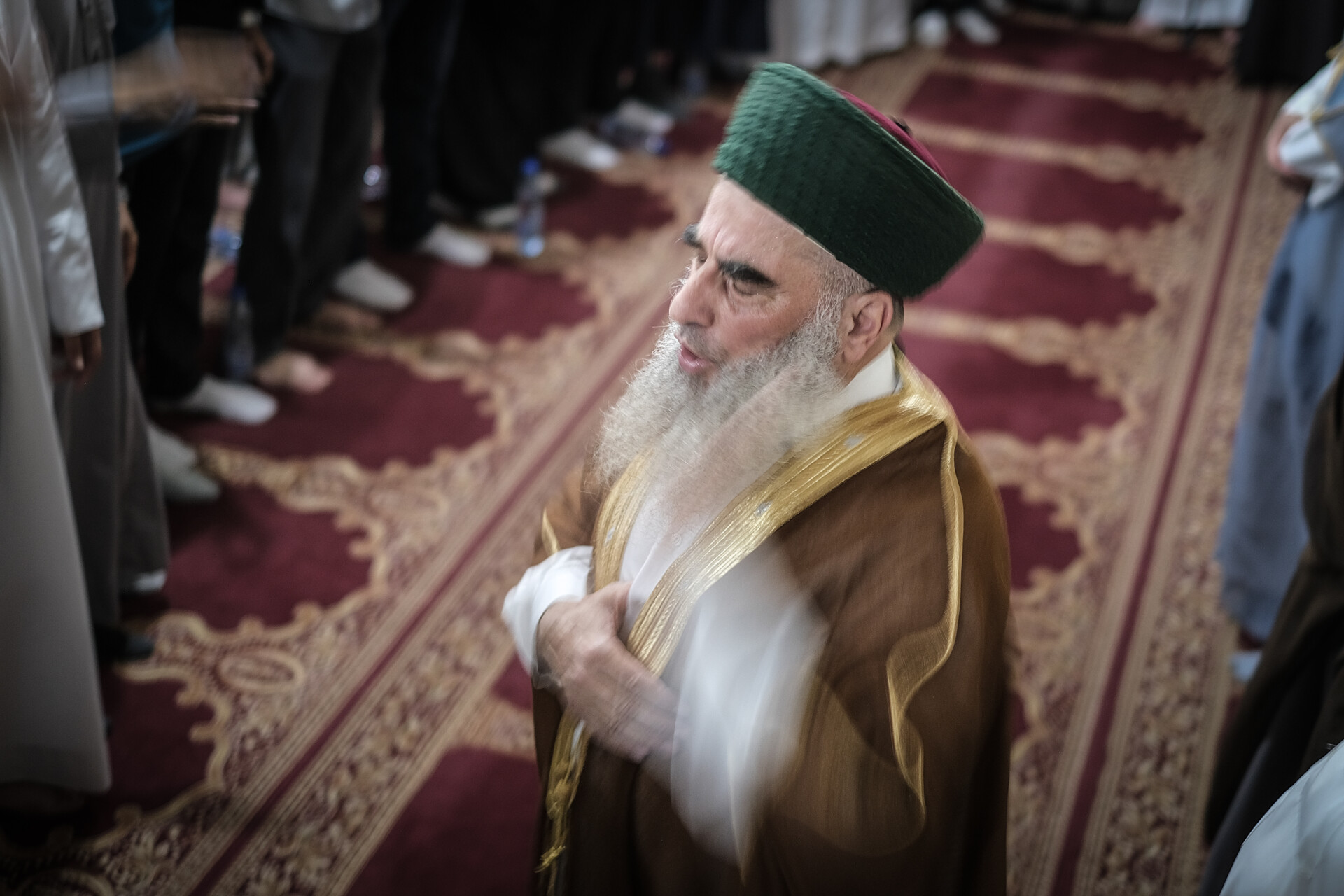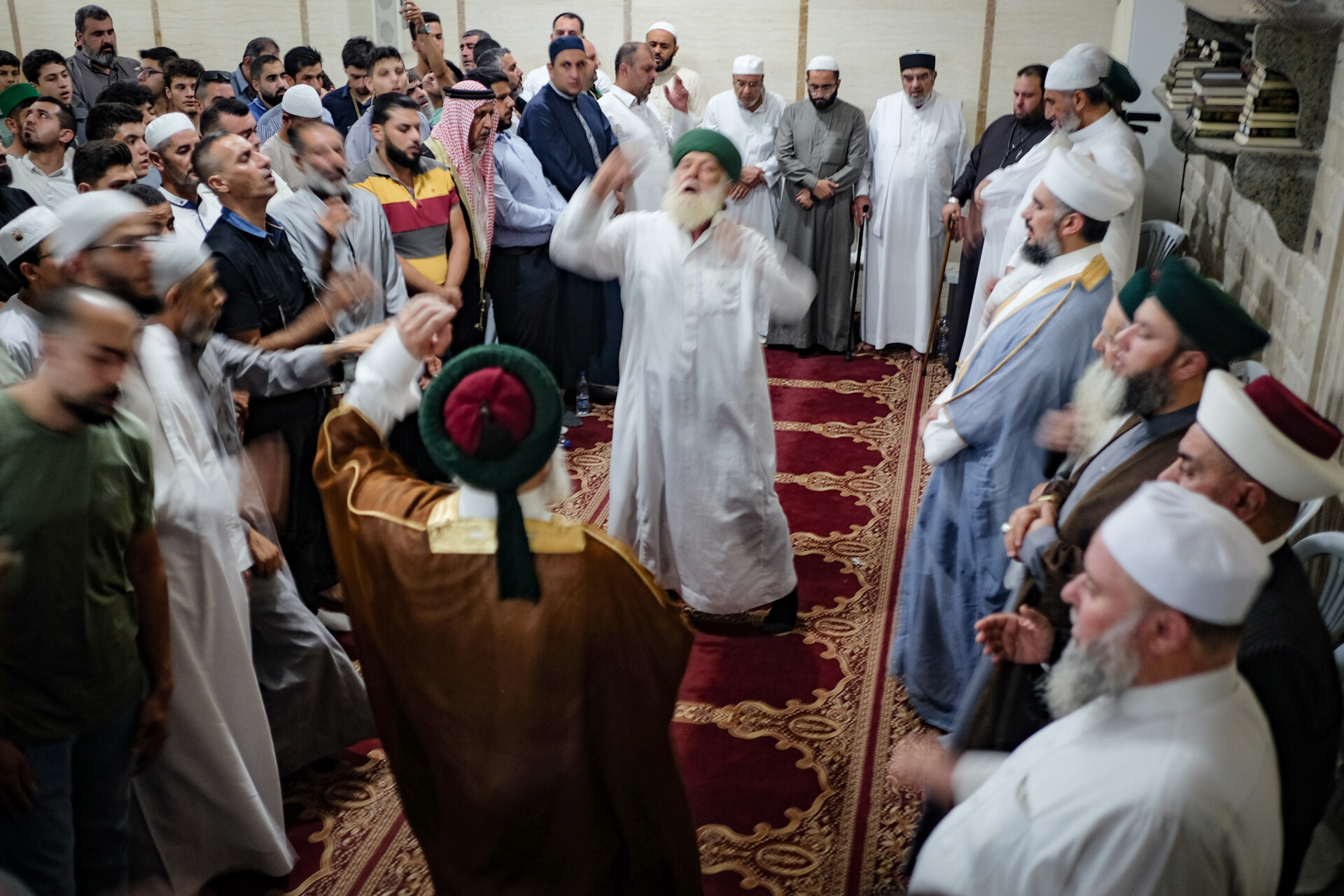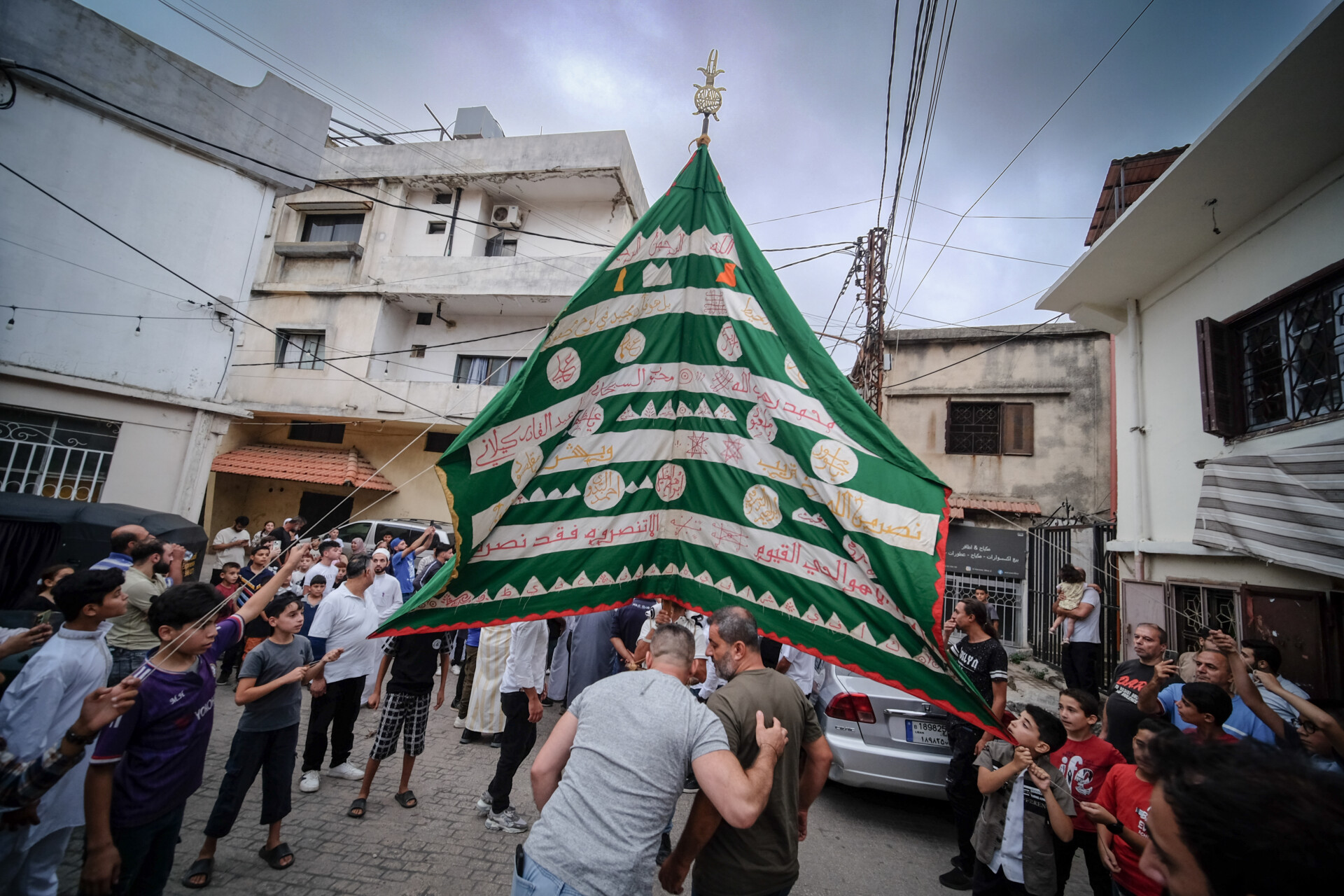The drumbeats started softly in the distance, somewhere around the corner in a stone alleyway. Suddenly, down the small road that snakes through the cemetery in Berkayel, northern Lebanon, a few dozen villagers emerged: little girls in bright dresses handing out sweets, women filming on their phones, men swaying and chanting to the tambourines. At the front of them all was one Muhammad Khaled Mousa, decked out in the robes and bright-green headgear of a Sufi religious sheikh. He was leading them to the green-domed tomb of one of his predecessors at the helm of Berkayel’s Sufi order.
Last Thursday was Eid al-Mawlid al-Nabawi, an Islamic festival that marks the Prophet Muhammad’s birthday. It’s also one of the biggest ceremony days for adherents of Sufism, a mystical form of Islam born in the medieval era that celebrates asceticism and love, and eschews the rigid by-the-book line of more conservative Salafists.
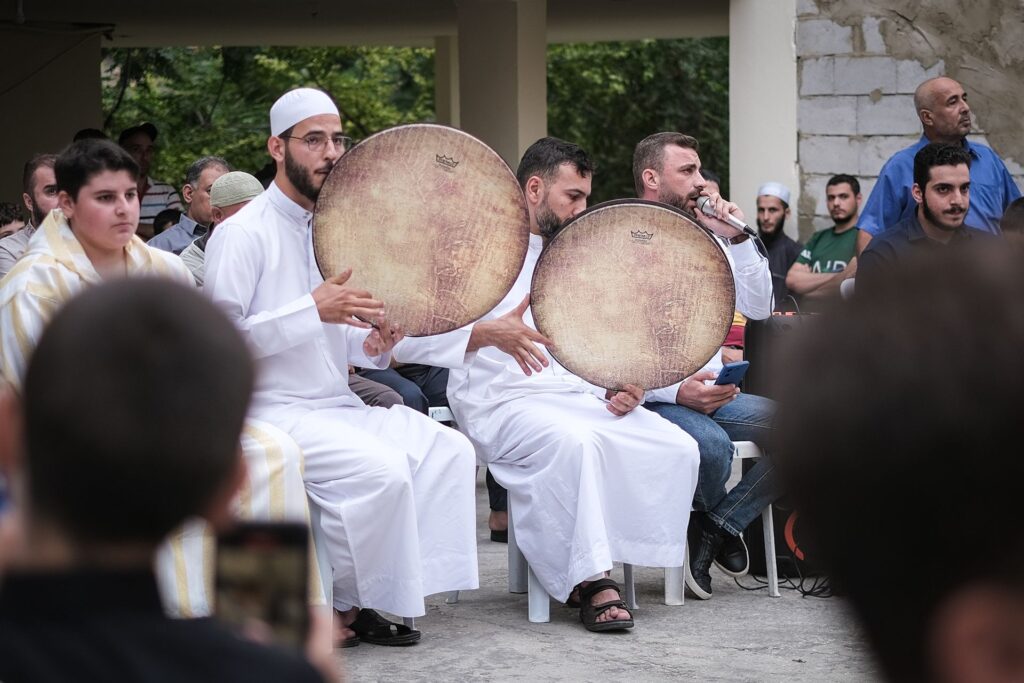
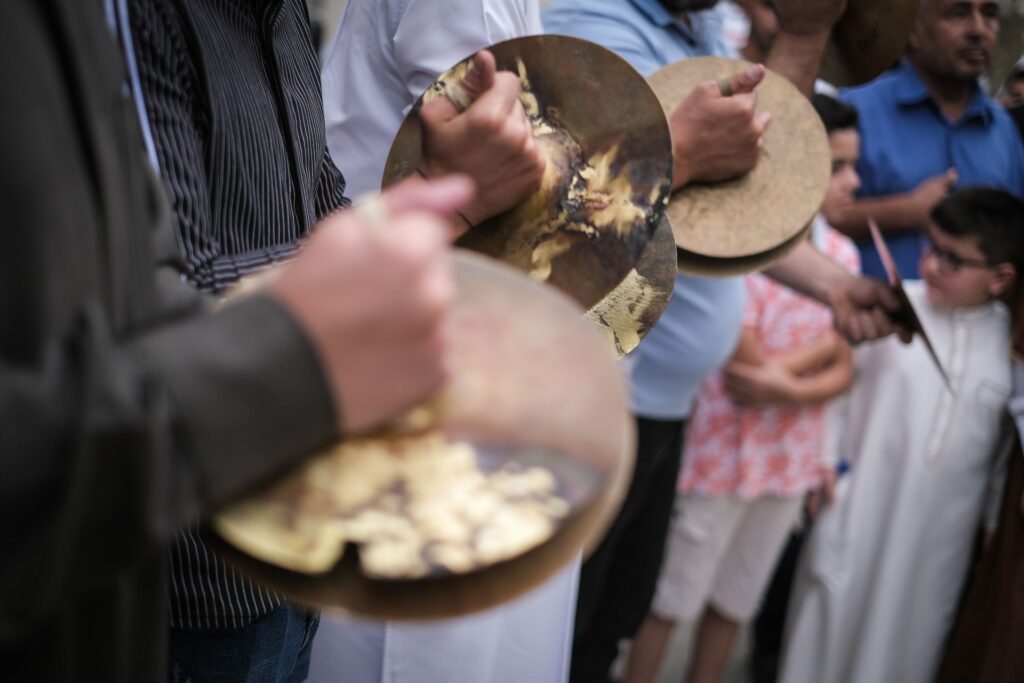
Mawlid is the biggest gathering for Sufis here in Akkar, but weekly worship sessions throughout the rest of the year also include intricate “zikr” prayer ceremonies with religious “nasheed” songs, as worshippers sway and twirl their bodies to the steady rhythm of drums. In Berkayel, at the front of the procession, men wrapped in bright-green cloth spun round to the music and crashed bronze cymbals together in an almost glittering beat. It quickened, rising, then suddenly stopped.
Elsewhere in Lebanon, Sufism is fading somewhat. In Tripoli, once a vibrant center for the tradition, adherents are gathering more privately, away from public eyes, according to Mira Minkara. She works as a tour guide in Tripoli, her home city, where she describes herself as “on a Sufi path.” Her own sheikh still runs communal zikr ceremonies for both men and women, though other Sufi orders in the city have faced harassment from hard-line Salafists.
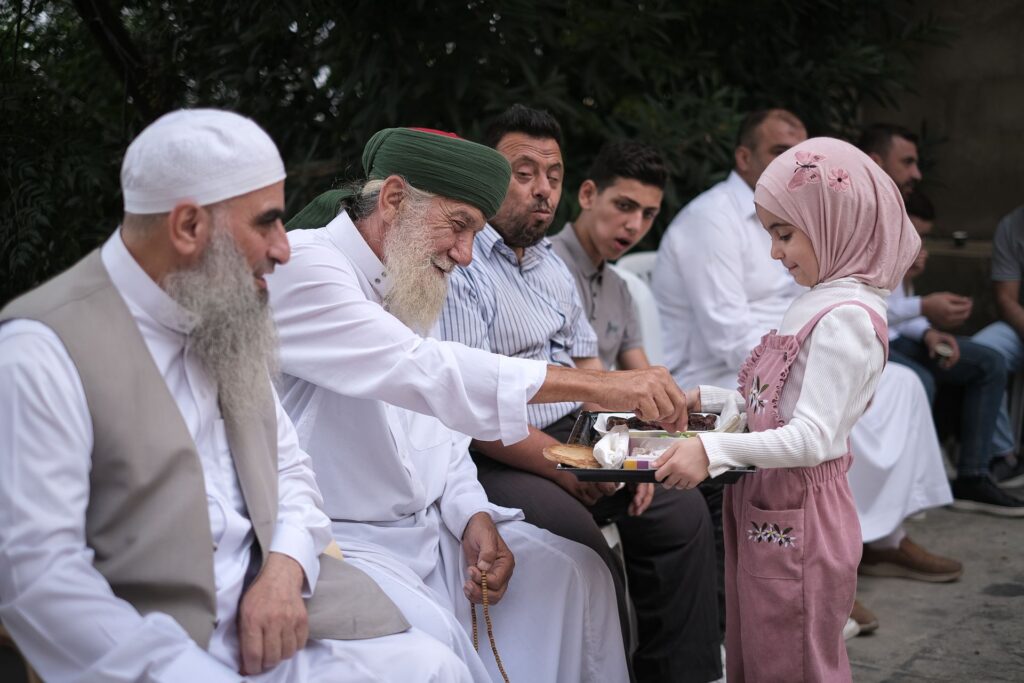
Historically, the two are split on ideological lines, with Salafists preaching literalist interpretations of the Quran versus Sufis’ purification of the soul through divine law. The split coincides with political rifts too; in Tripoli, the growth of an armed Salafist movement in recent decades — thanks partly to spillover from the war in Syria, but also to socioeconomic woes — means Sufis in the city feel less safe openly practicing their rites.
In northern Lebanon’s Akkar governorate, however, where a predominantly Sunni Muslim population is spread across rolling mountains, village-level Sufi orders with their own “zawiyas” (designated spaces for the practice of Sufi rituals as well as religious study and learning) and winding lineages of revered sheikhs are thriving — openly.
There’s a veritable rabbit hole on YouTube of grainy cellphone footage of the ceremonies — from official zikr gatherings in beautifully lit Akkar mosques attended by big-shot Sunni religious figures, to groups of local guys simply gathered in the poured-cement frames of unfinished buildings, the biggest empty spaces available to them.
The largest zawiya is in the village of Maccha, where, I was told, the grandest Mawlid ceremony in the governorate takes place. It’s also the oldest existing zawiya that’s still in use, according to Bilal Abdelfattah. A music teacher and oud player by day, Bilal spent the past several years traveling between Akkar’s rural villages, recording the nasheed music of their local Sufi orders for a master’s thesis in musicology. He, too, is from Akkar, from a small town called Haizouq that, like dozens of others, has a small zawiya hidden in its streets. It sits empty these days, as the village’s faithful stream instead to the bigger zawiya in Machha, but the memories of its zikr ceremonies remain.
“I grew up with this music,” Bilal told me after Thursday night’s Mawlid ceremonies. According to him, Sufism has been active in Akkar since at least the ninth century, when the Sufi traveler Ahmad ibn Abi al-Hawari found evidence of worship during his wanderings around the Levant. When I asked local Sufi sheikhs how long it’s been, they simply said “hundreds” of years, a long line of their fathers, grandfathers and great-grandfathers stretching back to somewhere in the distant past. Students from today’s Lebanon likely studied under Sufi mystics in nearby Syrian cities like Homs or, further afield, Aleppo, later bringing the movement back home to their villages in the Akkar mountains.
That was after Sufism had already spread through much of the medieval Islamic world, partly in reaction to social injustices in medieval Baghdad under the Abbasids. “There was a lot of poverty,” Bilal said. “People turned to spiritualism.”
Akkar, too, is suffering. Hours north of Beirut, it’s long been neglected by the state. A countrywide financial crisis since 2019 has seen the poverty rate across Lebanon triple, reaching as high as 70% in Akkar, according to a World Bank survey. Most people work in agriculture or construction, or join the Lebanese army, giving the governorate its nickname: “the storehouse of the army.”
“It’s a neglected area, and poor,” according to Bilal. “No universities, few job opportunities. This makes people in Akkar turn inward into themselves, to [religion] as a form of therapy. … Sufism is a shelter from all these things.”
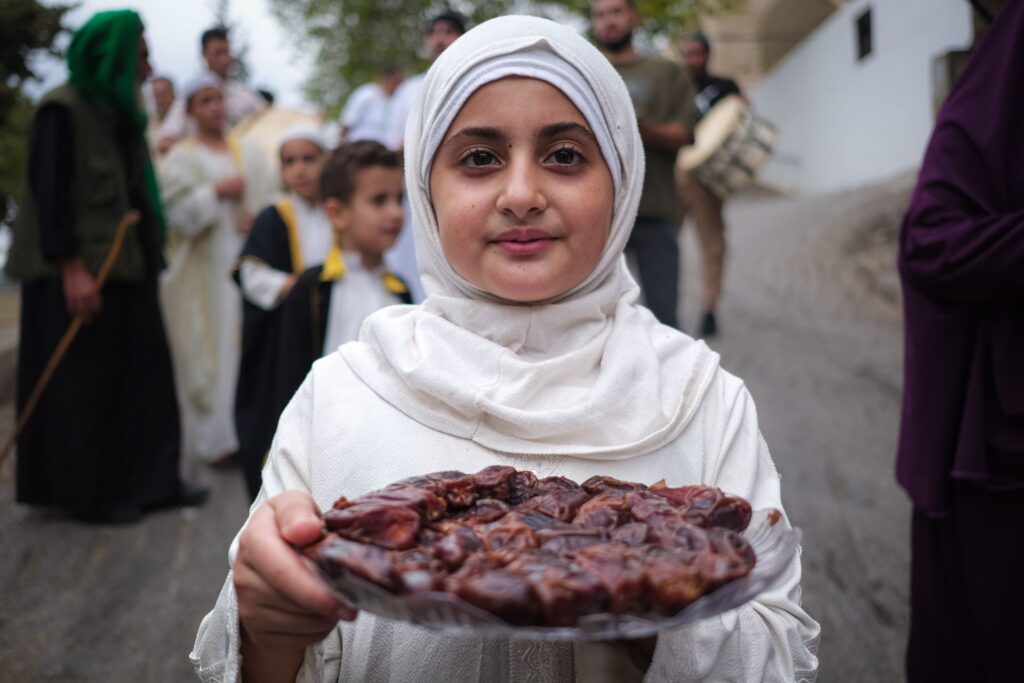
At the Mawlid ceremony in Machha, hundreds of men gathered in the village’s stone zawiya building, spilling out into the courtyard’s solemn circle of plastic chairs. At the helm was one Sheikh Muhammad Abu Obeida al-Zoubi, wrapped in green and sporting a long gray beard. One by one, other Akkar sheikhs and religious students wearing green “taqiyah” caps filed in, to pay their respects before a band of nasheed players began their steady chants.
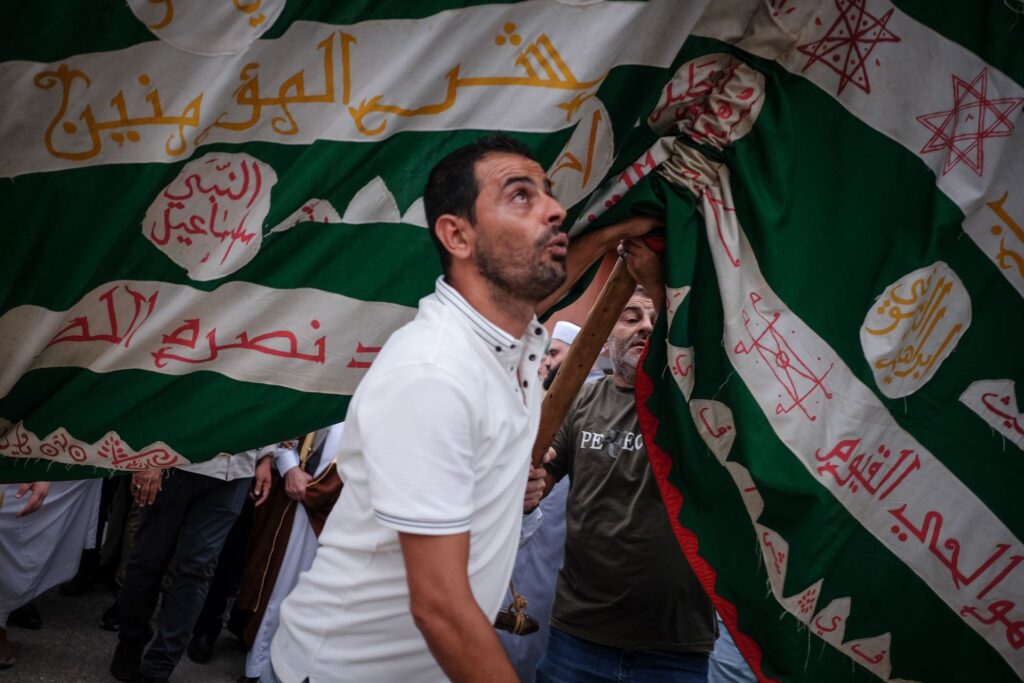
I watched from above, on a balcony with the women — including Sheikh Muhammad’s wife, Fatina. She breathlessly handed out coffee and sweets. Just steps away were her kitchen, living room and bedroom; the couple live in the zawiya full time, taking care of its little collection of historic prayer books and drums.
One book, I was told, was a 500-year-old volume of the Prophet Muhammad’s sayings, passed down through the ages. Fatina’s son Obeida — slated to become the next head sheikh of Maccha’s Sufis after his father — lovingly flipped through its pages, showing me where they had been torn and weathered by time. His son, a little boy with glasses, waited in the next room.
“People think we are all extremists [here in Akkar], but it’s the opposite,” Fatina later said, taking a break on a sofa in the women’s wing of the living quarters. Like on Mawlid: “For us, it means joy, as you can see.”
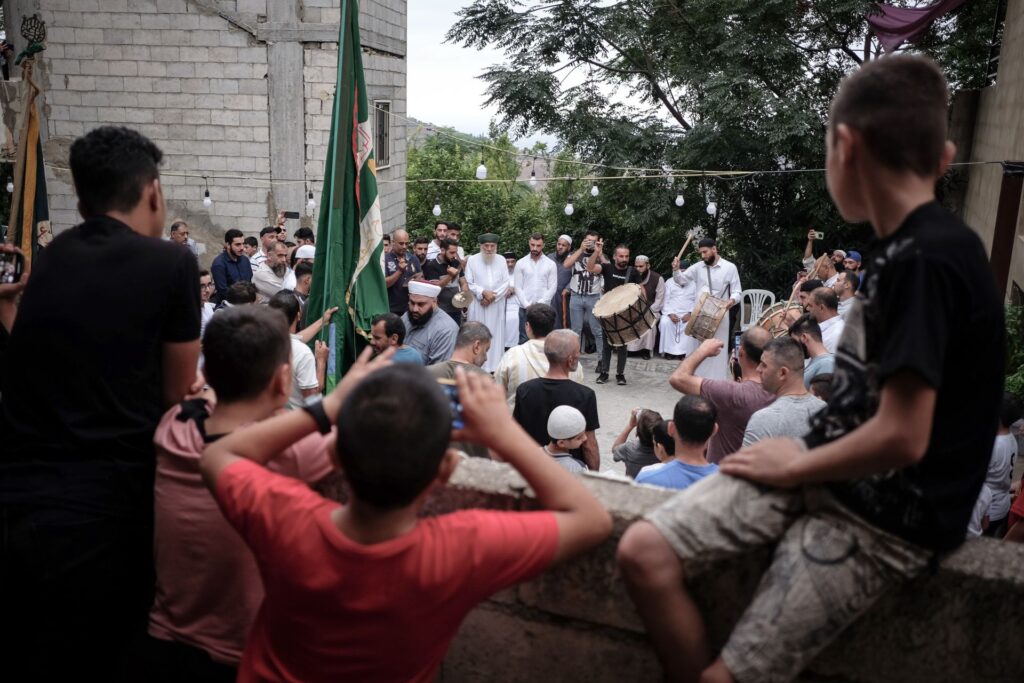
Finally, her husband, Sheikh Muhammad, found a few moments to rest too. He looked wizened and serious and, I realized, exactly like Christopher Lee’s Saruman the White. Since he was a little boy, he knew that someday he would become the head of Machha’s old zawiya. Like the nasheeds themselves, the books, the hand-sewn banners in the prayer room bearing the names of the prophets, so, too, does leadership of the town’s Sufis get passed down, he said, “from generation to generation.”
Why are there so many Sufis in Akkar? “The people here are loving,” the sheikh told me, simply. “Our religion is one of love.”
He soon walked back out across the street, into the river of men now entering the adjoining mosque. From the huge speakers placed outside, I heard the sound of an elderly voice preaching and, before I noticed the transition, the growing voices of the Sufi congregants chanting to a quickening drumbeat.
I heard shouts of “Oh, Allah!” as the words of praise blended together in the night.
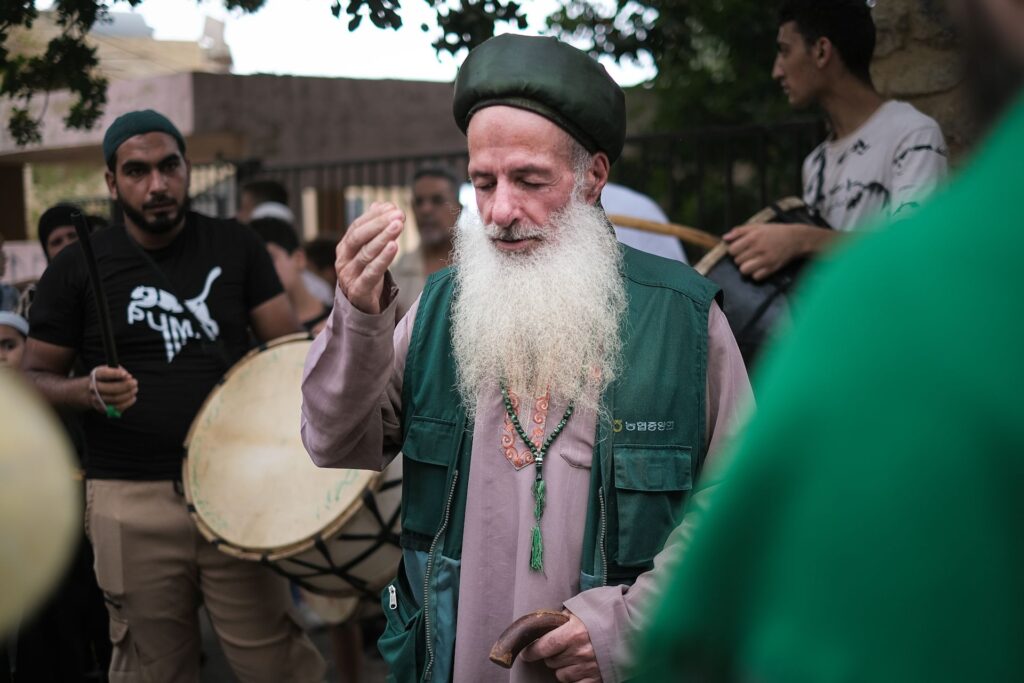
“Spotlight” is a newsletter about underreported cultural trends and news from around the world, emailed to subscribers twice a week. Sign up here.



